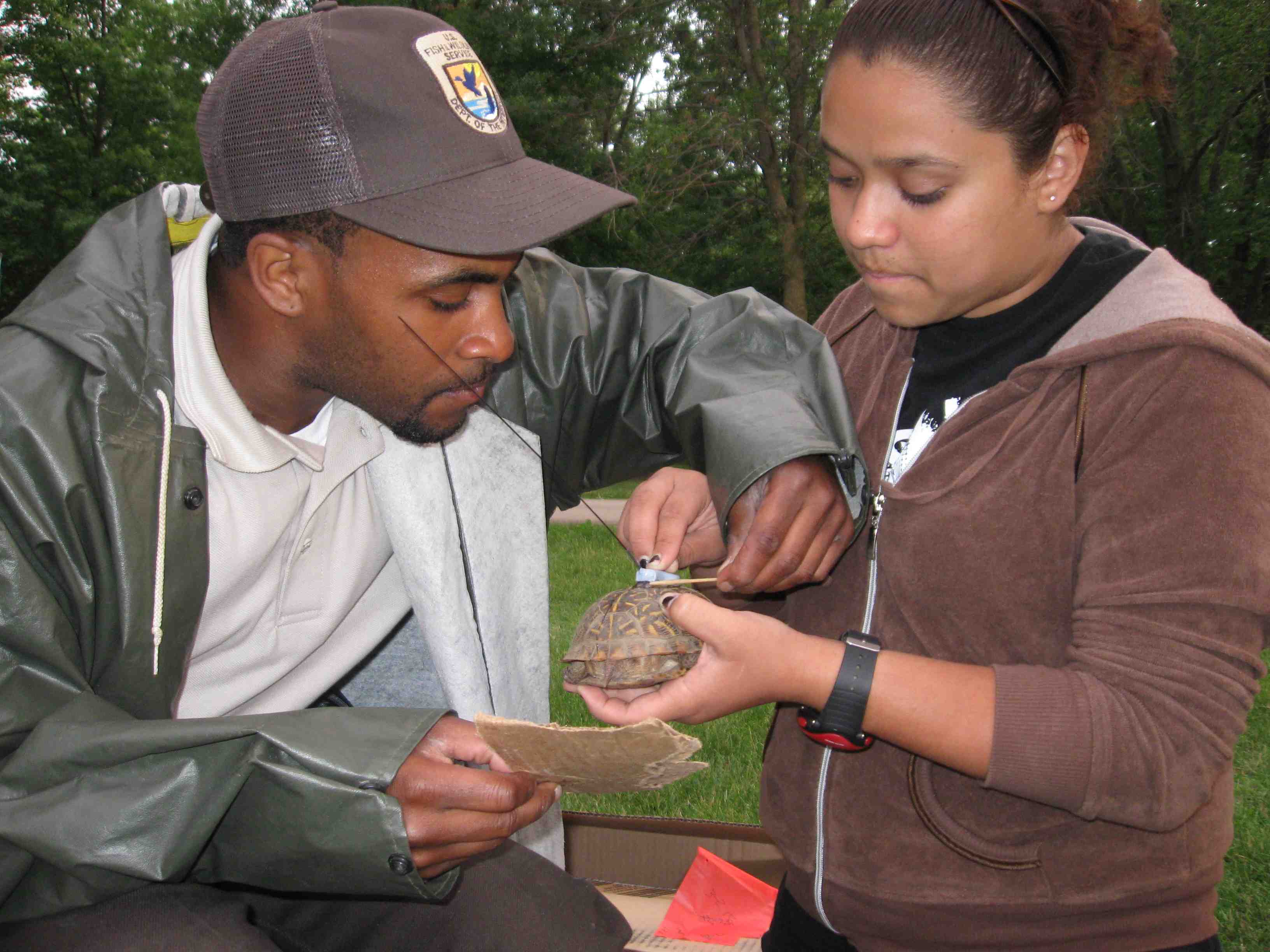
Using Career In Conservation To Protect And Inspire
Working with animals was my ticket out of the rough, crime-infested streets of Chicago,” Jeramie Strickland says. “And you can quote me on that. It’s my testimony.”
He isn’t shy about relaying how his love for the outdoors and nature spared him from an uncertain future, one in which many of his peers became “gang-bangers and drug dealers.”
Strickland (MS ’08 ecology and evolutionary biology) is a wildlife biologist with the United States Fish and Wildlife Service at the Upper Mississippi River National Wildlife and Fish Refuge. He is stationed at one of the most visited refuges in the nation, which attracts millions of hunters, fishers and other outdoor enthusiasts from nearby urban areas including Chicago.
Strickland’s inner-city Chicago childhood was interrupted by a three-year respite in the backwoods of Alabama. Without money for afterschool programs and sports, the five-year-old spent his days catching frogs, crafting homemade fishing poles and exploring every nook and cranny of the ponds surrounding his home.
“I moved back to Chicago in third grade, and I couldn’t fish or swim in Lake Michigan. It was too polluted. I didn’t have that outlet anymore,” Strickland says. “When I started to have behavior issues in elementary and junior high school, my teacher’s response was for me to do math and science with guidance counselors as my punishment.”
Strickland’s “punishments” led to winning science fair projects at the school, district and city levels. He was strongly encouraged by mentors and counselors to attend the Chicago High School for Agricultural Sciences where he followed the animal science track working with the school’s livestock and aquaculture programs.
To his surprise he was offered a partial scholarship to the College of Agriculture and Related Sciences at Delaware State University, where he gained undergraduate research experience and held internships at Purdue University, Michigan State University, the U. S. Department of Agriculture and in Nambia, Africa.
He realized his true passion—sharing his knowledge with youth, especially minorities and urban students—working for the Ecological Society of America as an education program coordinator. He knew a master’s degree would advance his career and provide more opportunities for him to work with youth. So he sought out Iowa State University biologists Fred Janzen and Anne Bronikowski.
“Jeramie’s application for graduate work simply oozed enthusiasm and the diversity of the meaningful experiences in his background was exceptional,” says Janzen.
Strickland went on to study painted turtle nesting in Janzen’s lab performing fieldwork at the refuge where he now works. He helped start the Turtle Camp Research and Education in Ecology program.
Strickland’s work at the Upper Mississippi River National Wildlife and Fish Refuge is busy and varied. His enthusiasm and down-to-earth nature is obvious as he explains a day’s work could entail hosting youth and disabled hunters during specialized hunts, bald eagle population counts, recovery of threatened ornate box turtles—the list goes on and on. There is no typical day.
“I have to remember to say, no,” he admits. “There are so many fun and exciting projects to take on I have to remember I can’t do everything.”
One thing he rarely says no to is any opportunity to share his love for wildlife and the environment with youth. In doing so he realizes he isn’t just teaching science, he’s showing kids like him a glimpse of a future they may not have thought possible.
“Getting kids involved in conservation and exposing them to the outdoors is my way of giving back,” Strickland says. “I am truly thankful for my mentors, and I want to give kids from my community a better role model.”
Strickland serves as a mentor for the Ecology Society of America and The Minorities Striving and Pursuing Higher Degrees of Success in Earth System Science Program. Both programs provide students with professional development opportunities, science exposure (including research), networking opportunities and reciprocal mentoring opportunities.



